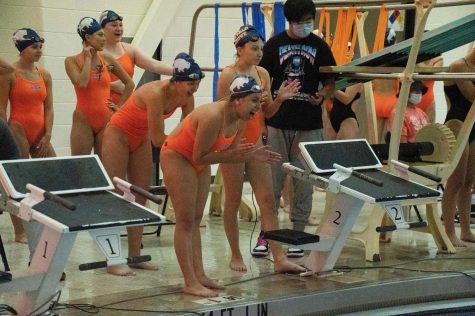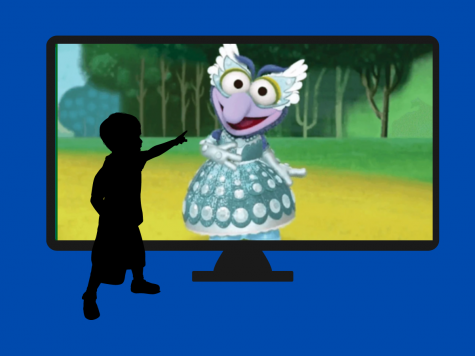Self worth shouldn’t be determined by success and failure
Extracurriculars as Hobbies
There is a lot to be said for striving for excellence. After all, almost all of the most successful leaders and self-made celebrities seem to swear by never settling for less than their best. While it’s almost universally agreed upon that putting in effort is a good thing, the idea of being “the best” has recently been called into question.
In high school, there is often pressure to be “the best” in multiple areas of life, including school, sports and other activities. This pressure is often looked at as a motivating factor towards improvement and rarely critiqued for its implications. After being constantly reminded to aim towards being “the best” at certain activities during childhood, many teenagers begin to link their skill levels with their self-esteem. According to chamber orchestra member senior Sydney Sadler, she sometimes lets her performance level in orchestra impact her self-confidence.
“Even though I consciously know that it doesn’t matter, when I’m not first chair, I feel like I’m not good enough or trying hard enough,” Sadler said. “I try not to let it get in the way of enjoying music, but it’s hard not to think about.”
This is an unsurprisingly common perspective among teens, particularly those involved in competitive activities and sports. Numerous online articles such as a 2015 Psychology Today article titled “Teenage Insecurities” claim that teenagers one of the most insecure age groups and this pressure may be to blame. In order to build a stronger sense of self-worth, teens need to learn to let go of the pressure to be “the best” and focus more on learning.
“You don’t have to be the best at everything and I think it’s important to realize that,” junior Kelly Duong said.
Unfortunately, letting go of this pressure is much easier said than done. It’s often a gradual process that occurs through a combination of time and effort. One way to speed up the process is to compare yourself to other people less often.
“I try not to compare myself to others,” Duong said. “When I see others succeed, I just try to use it as motivation to better myself.”
It’s important for teens to develop healthy mindsets on the topic of improvement. But, they aren’t the only ones responsible for their mindsets. Seeing as many teens get a majority of their information from the adults in their lives, it’s arguably equally important for parents and teachers to develop healthy mindsets on the same topic.
“As a teacher, I used to teach my students that they needed to be the best,” choir director Debora Utley said. “Now, while I still want them to strive for excellence, I want to focus more on teaching them to enjoy music.”
As a parent or teacher, it can be difficult to determine how much pressure to put on students to help them succeed without causing unnecessary stress. When attempting to find this balance, it’s important to consider the fact that teenagers are constantly getting pressure from other sources as well, including their other family members, teachers and coaches.
“My mom has always pushed me to try my hardest at music, which I’m grateful for,” Sadler said. “But, when I’m getting pushed by my mom, my teachers and myself, it all starts to pile up.”
Adults and students alike can put the idea of improvement into perspective by considering their values. While it’s good to focus on skills and abilities, sometimes, it’s more important to focus on self-confidence and relationships.
“When I die, I don’t want people to remember me for being a good choir director,” Utley said. “I want them to remember me for making them feel special and good about themselves regardless of what they achieve.”



